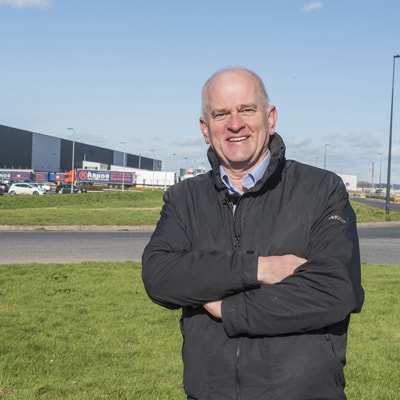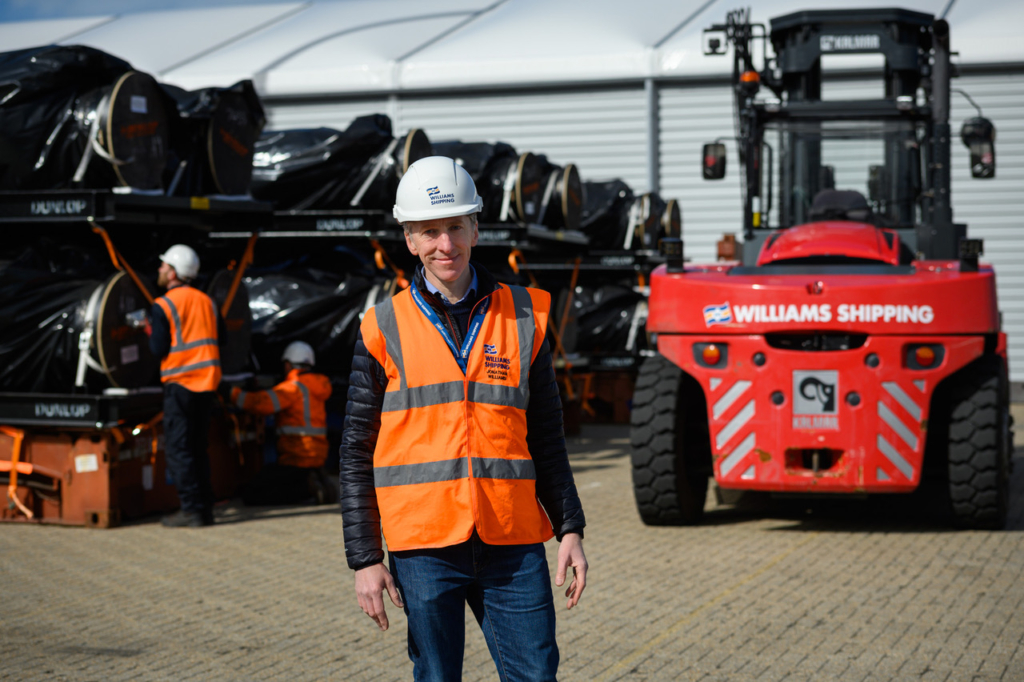The road to zero carbon logistics is truly worth taking, says real estate adviser Avison Young

Changing EPC regulations may render 89 per cent of standing industrial & logistics properties in the South West environmentally obsolete by 2030 unless occupiers and property owners put plans and finance in place now, according to new research by commercial real estate adviser Avison Young.
As a result of the UK government’s 2050 net-zero goal, changes in government policy and building regulations will put significant legal pressure on owners of real estate to improve the sustainability of their buildings.
According to Avison Young’s analysis of EPCs (Energy Performance Certificate), the incoming 2023 MEES (Minimum Energy Efficiency Standard) requirements will impact around 10 per cent of buildings at this current time.
However, by 2030, the MEES requirements will increase further with all non-domestic properties needing to achieve an EPC grade B or above, which would require 89 per cent of industrial properties in the region to improve their energy performance.
Building Zero – The road to zero carbon logistics is a new report released by Avison Young, which sets out the key pressures affecting the industrial built environment, the changes that need to be made and the indicative cost of doing so in order to achieve the green industrial revolution.
The size of the national industrial property sector and its environmental impact make it a key battleground for the UK’s net-zero strategy – one with a multitude of highly influential trends to consider.
- Industrial demand is exceptionally strong - the heat of the market, fuelled by the surge in online retailing, has powered the need to increase the efficiency of space, transitioning from ‘big sheds’ to high-tech hubs
- Post-Brexit UK - companies are keen to de-risk supply chains and re-shore some production functions, providing a further boost to UK industrial property demand
- Green growth – the technological and green revolution will be a particular catalyst, driving growth of gigafactories, data centres, battery storage, green energy manufacturing, as well as more niche activities such as vertical farming
- Power – the industrial sector requires a growing volume of renewable energy to sustain it, making the availability of clean-sourced power an increasingly important consideration
- Changing locational demand - development opportunities are being driven not only by the rising level of occupier demand but also the need for increasingly bespoke space and the proliferation of supply in historically non-prime locations
- Greening supply chains – the entire supply chain is under sustainability scrutiny, with prospective occupiers and owners requiring strong environmental credentials
While forward-thinking developers are already striving for net-zero carbon, biodiversity net gain, BREEAM Outstanding and EPC A ratings on new stock, the greatest challenge will be around how to upgrade the existing stock.
Daryl Perry, head of UK Insight at Avison Young, said: “Owners and developers of warehousing and logistics space are increasingly setting more stringent carbon and sustainability targets for both new and existing portfolios.
"This is being driven by a number of factors, including occupier requirements to minimise supply chain emissions and ensure that their built stock is fit for purpose, as well as by policy requirements. Our report shows a holistic approach to reducing carbon emissions is required and will enable the sector to affect positive change on the road to net-zero carbon.”
Paul Hobbs, South West director at Avison Young’s industrial team, said: “Although the cost and scale of the change required to improve the region’s industrial stock is significant, it is now unavoidable, and we avoid the issue at our peril.
“There is a huge opportunity however to inject value into the sector’s built environment with new cheaper technologies available. With yields in the sector and demand at record levels, the ability to establish a further green premium will be welcomed and also demanded by many investors (and their shareholders) on the best quality stock.
"Stock, where there is no reaction to the above, will become increasingly harder to lease (in some cases illegal), trade and use as security for debt.
“We are already seeing developers of new stock putting environmental features as equally important in their design as function and location. That’s a massive shift in a relatively short period of time.
"The greatest challenge is how to cost-effectively upgrade existing stock. Improving the thermal performance of industrial buildings, lighting efficiency and heating systems are the main opportunities for reducing built environment emissions. In many buildings, the viable improvement opportunities will be from relatively quick and easy improvements to the services within the property such as cutting out reliance on gas.
"However, landlords are encouraged to set their targets much higher than the minimum standards and think holistically – not only because regulations and levies are expected to become increasingly targeted to reducing carbon, but because the investor universe and occupier base will demand it.”












